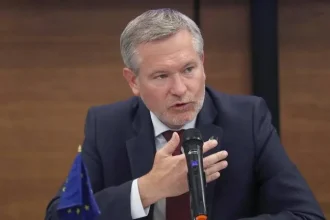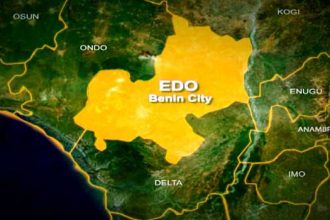President Muhammadu Buhari has admitted he failed to sign the continental free-trade agreement because he is a “slow reader”.
The president’s admission has given ammunition to critics who call him “Baba Go-slow”.
Mr Buhari said he intends to sign the agreement, reached by African leaders at a summit in Rwanda in March, soon.
“In trying to guarantee employment, goods and services in our country, we have to be careful with agreements that will compete, maybe successfully, against our upcoming industries,” Mr Buhari said at a news conference on Wednesday, Reuters news agency reports.
“I am a slow reader, maybe because I was an ex-soldier. I didn’t read it fast enough before my officials saw that it was all right for signature. I kept it on my table. I will soon sign it,” he added.
Mr Buhari was speaking during a visit to Nigeria by South Africa’s President Cyril Ramaphosa.
Mr Ramaphosa had earlier told Nigerian business leaders that South Africa saw huge benefits from the continental free trade deal and that a draft agreement relating to the movement of people was being reviewed.
This was Mr Ramaphosa’s first visit to Nigeria since he became president in February.
He said South Africa wanted closer relations with Nigeria. The two countries have the biggest economies in Africa.
Both countries have been hit hard in recent years by low commodity prices that slowed growth, cut government revenues and weakened their currencies. But each has emerged from recession, largely because of a rebound in commodity prices.
The growth of the two economies played a large part in the World Bank’s forecast that sub-Saharan Africa’s economy will grow by 3.1 percent this year, up from 2.6 percent in 2017.
The continental free-trade zone, which encompasses 1.2 billion people, was initially joined by 44 countries in March. South Africa signed up earlier this month. Six countries, including Nigeria, are yet to sign the agreement.
Economists point to the continent’s low level of intra-regional trade as one of the reasons for Africa’s enduring poverty and lack of a strong manufacturing base.
African Union officials said countries that have signed the agreement will need to submit a schedule of tariffs by December, adding that they expect intra-African trade to double over the next four years once tariffs are reduced.
reuters











